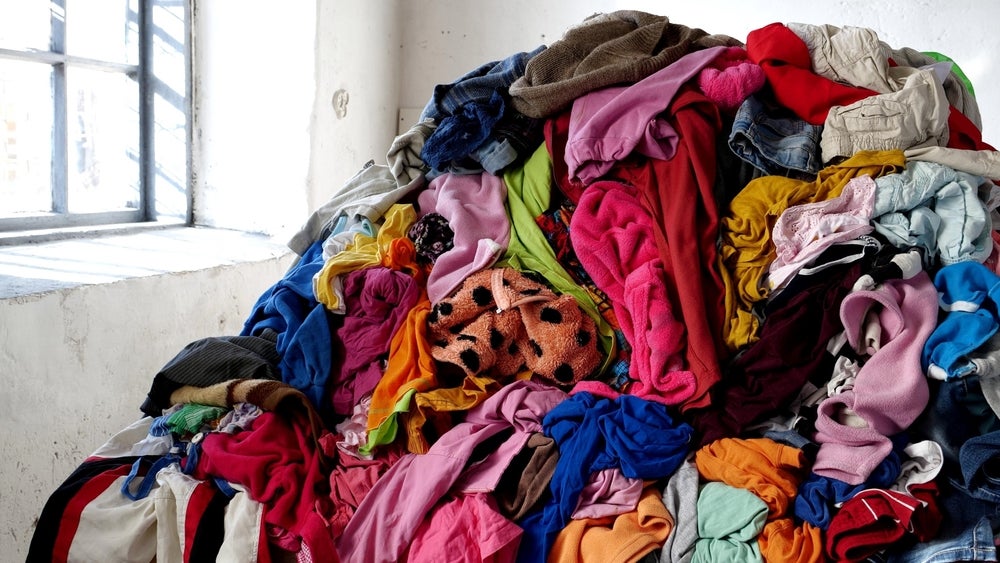
The report and positioning of the European fashion industry on sustainability and policy framework will be presented during European Fashion Alliance’s conference in Brussels end of 2023.
The political round table was opened by Thierry Breton, EU Commissioner for Internal Market, and Dr. Christian Ehler, Member of the European Parliament, who pointed out that if there is one industry that is heavily involved in supply chains, “it is the one of fashion”.
“We strive for all textiles placed on the European market to be long-lived, recyclable and respectful and have several EU initiatives on the way: Firstly, the Ecodesign regulation to boost sustainability and circularity; secondly, the digital labelling with a digital product passport; thirdly, the revision of the waste framework directive, which will reduce textile waste. The ambition of this textile strategy together with these initiatives will only bear fruit if we can translate this with the entire ecosystem into commitment and actionable measures,” said Breton on the upcoming EU regulations.
“The importance of creativity and innovative strength was emphasised, but also the craftsmanship tradition of the European fashion industry. The central topic was the positioning of the European Fashion Alliance to the upcoming European legislation of the Ecodesign for Sustainable Products Regulation (ESPR) and the associated obligation of a Digital Product Passport (DPP).
The European Fashion Alliance places creativity at the heart of its ambition, recognising it as the driving force behind the industry’s innovation power. By fostering an environment that presents and supports creativity, the Alliance aims to elevate European fashion on a social and political level as a source for solutions.
How well do you really know your competitors?
Access the most comprehensive Company Profiles on the market, powered by GlobalData. Save hours of research. Gain competitive edge.

Thank you!
Your download email will arrive shortly
Not ready to buy yet? Download a free sample
We are confident about the unique quality of our Company Profiles. However, we want you to make the most beneficial decision for your business, so we offer a free sample that you can download by submitting the below form
By GlobalDataCarlo Capasa board member of the European Fashion Alliance and chairman of the Camera Nazionale della Moda Italiana on the future of Creativity, said: “We have to start thinking of being proud to be part of a creative and cultural industry. We must address that creativity has value in our society and it is the root of everything EFA wants to address. When we talk about new ideas, techniques and processes, craftmanship and industry, we must see them as a hymn to creativity. To protect it, we have to provide supporting regulations for European as well as all imported products. Traceability and transparency, holistic durability, stopping overproduction, respect for social sustainability and human rights, and Intellectual property, must be the key elements to protect what we define as creative fashion.”
The European Fashion Alliance acknowledges and supports the Ecodesign for Sustainable Products Regulation and calls for the consideration of the unique specificities of creativity-driven fashion products in the implementation of feasible, yet ambitious, eco-design requirements. In that respect, EFA members have notably addressed the question of durability of fashion products, a key aspect in terms of sustainability that must be considered in a more holistic and of course measurable way, with both its intrinsic and extrinsic characteristics, and should not be limited only to functional robustness.
Pascal Morand, board member of the European Fashion Alliance and executive president of the Fédération de la Haute Couture et de la Mode, additionally states: “EFA supports the ban of destruction of unsold goods, but this requires a clear definition that these goods are fit for consumption and sale. Besides, upcycling and recycling in general cannot be considered as mere destruction as they also encompass virtuous practices. These are very much part of the circular economy mentality and business models displayed by innovative and creative designers.”
EFA supports the provision of relevant, accurate and reliable information to the consumers and the digitalization of such information as foreseen with the Digital Product Passport. However, EFA strongly warns against any measure that would imply disproportionate administrative and technological burdens on businesses and especially on SME’s, and would disregard, in particular, the challenges related to the textiles’ long and multidimensional supply chain.
The European Fashion Alliance also announced the first European survey “Status of European Fashion” at the round table. The survey serves as the basis for an industry report that will be presented in autumn 2023 at the next EFA Conference, to which decision-makers of the European fashion industry and EU policymakers will be invited.
Scott Lipinski, chairman of the European Fashion Alliance and CEO of the Fashion Council Germany, said: “With our Europe-wide survey we will collect the current state of knowledge on upcoming European legislative proposals and directives plus the sustainability status of brands. Not only facts and figures but also experiences of the fashion industry are of high importance to us as this will allow EFA to propose concrete and measurable calls for action.”
Federica Marchionni, CEO of Global Fashion Agenda, added: “The current business model of the fashion industry is unsustainable and needs to change to align with the Sustainable Development Goals. I am particularly proud to be part of EFA as collaboration amongst fashion councils and fashion weeks across Europe represents an example on how ambition can be turned into action guiding the industry and its stakeholders on required change.”







